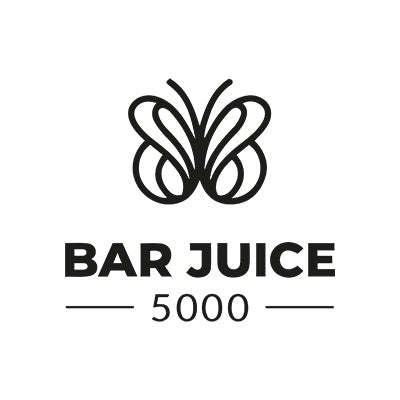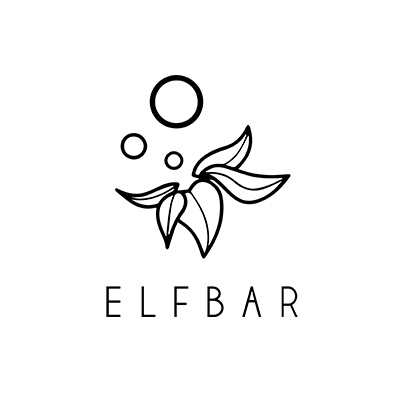Key Takeaways
The Vape Retailer Licensing Scheme is part of the Tobacco and Vapes Bill 2024. It will require retailers to get a license to sell vaping products, helping to stop illegal sales and underage vaping while raising over £50 million a year to support enforcement.
Table of contents
- How are vapes regulated in the UK?
- What are the new vaping laws in 2024?
- The Vape Retailer Licensing Scheme
- Do you need a license to sell vapes in a shop?
- What are the implications of the Retailer Licensing Scheme?
- What is the law on selling vapes?
- Can you vape indoors?
- Can a pub sell vapes?
- Summary
- Use of vapes among young people in Great Britain
- Retail and Distributor Licensing Framework for the Vape Sector
Questions have been raised about the implications of banning disposable vapes and increasing the cost of vape liquids once the Tobacco and Vapes Bill is passed into law. The main concern is that bans and price hikes will drive people towards the black market, which thrives already and is the biggest contributor to underage and illicit vape sales, and which the government, up till recently, had no real solution for.
But what would work?
Well, the UK Vaping Industry Association (UKVIA) introduce a licensing scheme for retailers who wish to sell vape and nicotine products. The scheme promises to be self-sustaining, generating more than £50m in its first year, which exceeds the government's £30m pledge to deal with the scourge of illegal vapes.
Join us as we explain how vaping is regulated, each piece of legislation that does so and highlight what the Vape Retailer Licencing Scheme is and how it may be a more effective means to combat underage vaping.
How are vapes regulated in the UK?
In the UK, vaping products, especially e-liquids, are strictly controlled by numerous pieces of legislation, to ensure the quality and safety of the ingredients. Here’s a breakdown of the key legislation:
Medicines and Healthcare Products Regulatory Agency (MHRA)
Manufacturers of e-liquids must report the production of all new vape liquids to the MHRA before they can be sold. These products must meet quality and safety standards before being listed on the MHRA database ,and they must be on the register for at least six months before they can be sold to the public.
Tobacco Products Directive 2016
The TPD requirements limit the capacity, advertising and packaging of vaping products as follows:
Maximum tank size: 2ml.
Maximum refill container capacity: 10ml.
Maximum nicotine strength: 20mg/ml.
Child-resistant packaging is mandatory.
Warning labels must highlight nicotine as an addictive substance.
Banned ingredients, such as colourings, caffeine, taurine and diacetyl are banned.
Vape advertising and sponsorship restrictions apply, prohibiting promotions that appeal to non-smokers.
Age Restrictions:
-
It is illegal to sell vaping products to individuals under 18 years of age. Retailers are required to verify customers' age at the point of sale.
What are the new vaping laws in 2024?
The Tobacco and Vapes Bill 2024 introduces key changes to address the youth vaping epidemic and regulate the industry further. The key points of the bill are:
-
A ban on disposable vapes as of 1st June 2024
-
£2.20 per 10ml price increase on all e-liquids
-
A licensing requirement for any retailer who wishes to sell vaping products
The Vape Retailer Licensing Scheme
The UK Vape Industry Association proposed a licensing framework that would require retailers to register and obtain a license to sell vaping products. The main aim is to curb the sale of illicit products and underage purchases by making retailers accountable for what they sell. Additionally, it would empower Trading Standards to monitor and enforce the legislation as well as build trust in the legitimate vaping industry. (2)
A scheme like this would proactively address the concerns around the issue of existing black market, which would benefit from a ban and price increase on single use vapes and e-liquids.
Do you need a license to sell vapes in a shop?
Currently, there is no mandatory vape license for retailers. However, the new Retailer Licensing Scheme, part of the Tobacco & Vapes Bill, aims to change this. It was created and spearheaded by the UK Vape Industry Association (UKVIA) and, in November 2024, was included into the Tobacco and Vapes Bill. Once implemented, all vape retailers will be required to:
-
Register with the licensing body.
-
Adhere to strict guidelines on age verification and product authenticity.
-
Retailers can face a fine of up to £10,000 if found to be in breach of the scheme.
-
Distributors caught selling without a license may be hit with a £100,000 penalty.
This licensing framework aims to tackle illegal vape sales and underage vaping, generating over £50 million annually to support enforcement efforts.
What Are the Implications of the Retailer Licensing Scheme?
The proposed scheme introduces several implications for businesses and consumers alike:
-
Retailers: Increased accountability and operational costs to comply with licensing requirements.
-
Consumers: Greater assurance of product safety and fewer opportunities for underage access to vapes.
- Industry: Potential reduction in illicit vape sales but concerns over smaller retailers being priced out of the market.
What Is the Law on Selling Vapes?
Under current laws, retailers must:
-
Not sell to anyone under 18.
-
Avoid marketing practices that appeal to children or non-smokers.
-
Only sell MHRA-compliant products.
With the introduction of the Retailer Licensing Scheme, non-compliance could lead to fines, license revocation, or prosecution.
Can you vape indoors?
Surprisingly, it’s not illegal to vape indoors. However, before you rejoice, you should know that most venues and business owners are likely to ban vaping indoors on their premises. Whilst not illegal, businesses (including public transport) are well within their rights to regulate vaping on their premises, and if you refuse to adhere to their policies, you may be asked to leave and could be prosecuted by the police if you refuse to comply with the owner’s requests.
Can a pub sell vapes?
Yes, pubs can sell vaping products if they adhere to the same regulations as other retailers. This includes age verification and selling only compliant products. However, pubs may also face additional scrutiny under the proposed licensing scheme. Where you can vape in a pub will be up to the discretion of the business owner.
Summary
The UK vaping industry will face significant changes over the next couple of years that will see the most popular vape devices banned and the cost of vaping liquids nearly double. Stricter regulations requiring retailers and distributors to register for a license provides a proactive and self-sustaining framework to tackle the black market and create a more accountable market place. Whilst all of these measures create a safer environment for consumers and under 18s, they also affect the affordability and accessibility of vapes which may negatively impact smokers wishing to quit..
For more detailed information, read the full framework proposal by UKVIA here.
Sources
(1) Use of vapes among young people in Great Britain - ash.org.uk
(2) Retail and Distributor Licensing Framework for the Vape Sector - ukvia.co.uk
www.vapesuperstore.co.uk contains general information about vaping and vapour products. The information provided is not medical advice, and should not be relied upon unless explicity cited. We do not make any warranties surrounding the health benefits, reliability and accuracy of written copy across all pages on our website, including blog content and content posted on social media.






